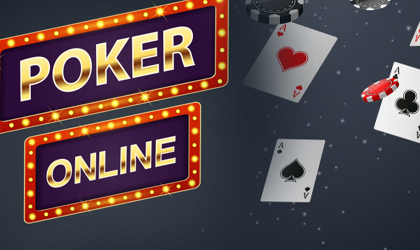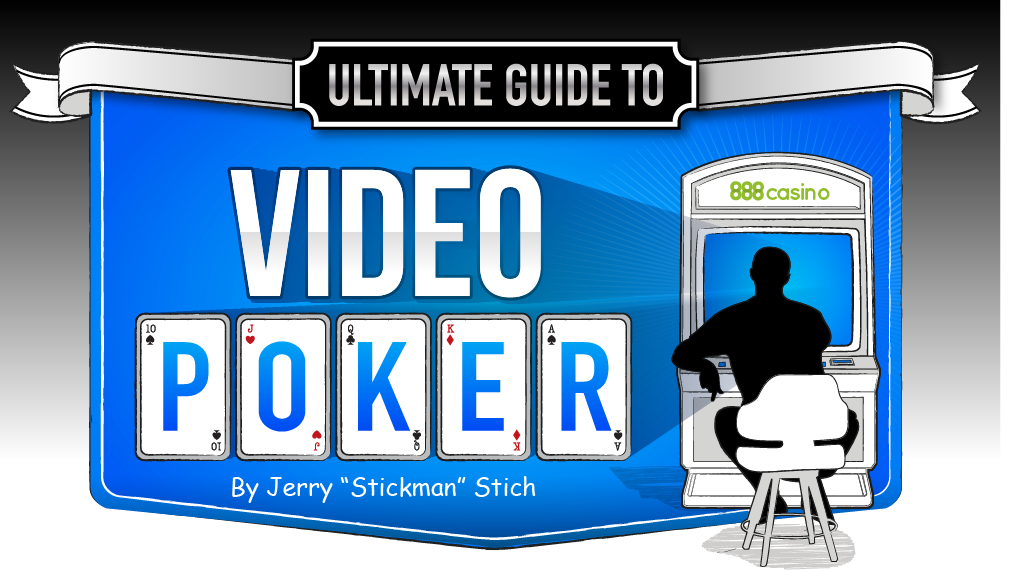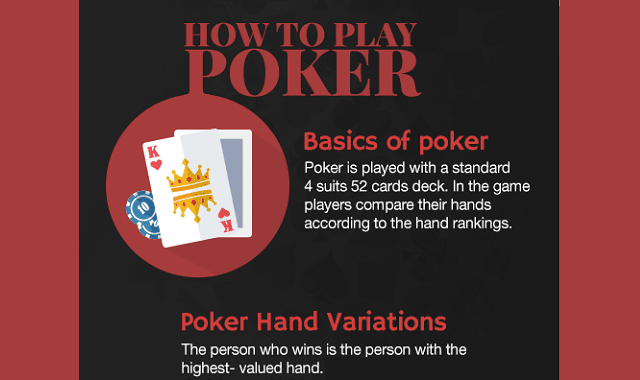Should I Play Poker
What You'll Need: To play most types of poker, you are going to need: 1 Deck of Cards, brand doesn't. Before playing every player should contribute something to the pot to be competed for. While playing poker you cannot definitely play both hands, there must be an opponent or opponents to play with. All you have to do is understand what hand your opponent is playing and make decision well on. The chance of the place being a scam or a way to fool the innocents can be high. Thus many people prefer to play poker in a real poker room or a land based casino because in first place they think it’s much safer than an online poker room. When you are still learning, it’s a good idea to play your poker hands according to the graph below. This will keep you safe most of the rounds, but it does mean you are folding a lot of your hands. Once you understand the basics it’s time to learn more about equity in poker hands and how you can put your opponent on a range of hands.
It’s important to define what money you are allocating to poker when considering what stakes to play. Some players have a dedicated bankroll, others have a roll which can be replenished from other sources of income. Whatever the case may be, monitoring your bankroll is a good way of keeping track, or keeping score, of your poker progress. Many successful players don’t see this as a limitation to the games they play, but rather a challenge to beat the current ‘level’ they are at and move up in the poker world.
Cash Game Bankroll
Pot limit and no limit Hold’em.
Cash game buy-in levels for good poker bankroll management.
If you are playing pot limit or no limit poker, the safe recommended size of your bankroll is 40 buy-ins of where you want to play. This means that if you want to have the best chance of making money at a $1/$2 game where the maximum buy-in is $200, you should have a bankroll of at least $8000.
Another way of applying bankroll management is by only putting a maximum of 2.5% of your bankroll on the table.
Limit Hold’em.
Limit hold’em players can have a somewhat smaller bankroll and follow the smaller end of the buy-in amounts than no-limit or pot-limit players. You should have 400 Big Bets as a minimum for the limit you wish to play at. Therefore to play $1/$2 limit Holdem, you should have a bankroll of at least $8000.
Bankroll variations based on type of bankroll.


If you are using a sum of money that is less significant to your daily living, and which can be replenished, you can afford to lower the buy-in level for your bankroll. A roll of $500 to a player with a full-time job with a good salary is going to be less significant, compared to that of a university student who is only working part-time.
MTT Bankroll
Multi-table tournaments often attract a huge field of players, and are very top heavy in their pay structure. For these reasons, MTT’s require the largest bankroll in terms of buy-ins as protection against frequent swings.
The general rule used by MTT pros is to have 100 buy-ins, or not to invest more than 1% of your poker bankroll on a single tournament.Even top online pros like ‘pkaiser’ experience prolonged down swings.
Skill Factor or ROI
Your edge over the field, which can often be measured in terms of your return on investment (ROI), can help when deciding the number of buy-ins to have in reserve. If you’re playing $215 online turbo tournaments, then since turbos by nature have lower ROI’s given their fast paced nature which reduces the skill element, then you may want to go beyond the 100 buy-in rule. However strong online players often have ROI’s of over 40% in $11 online tournaments, especially if they are deep stack tournaments. These slower structured tournaments allow for more play when stacks are deeper, as well as post-flop play, which allow more skilled players to find more profitable opportunities and gain a bigger edge over the field.
Staking
Given the variance in MTT tournaments, many MTT regulars are actually staked. This means they have a backer who pays for their tournament entries and endures any loses, in return for a % of the players long-term profit. A typical arrangement is for an MTT player to split profits 50% with their backer. This usually involves an on-going relationship to protect both parties from the variance, and although the player receives less money overall, the reduced stress from down swings as well as the ability to frequently play much higher games than they may have the bankroll for, make staking a very popular choice for tournament professionals. A variation of staking is to sell action, or a BAP (buy-a-piece), which involves the player selling action on a ‘one-off’ arrangement. For example a player might decide to sell 75% of a Pokerstars Sunday Million entry since they don’t want to pay the entire buy-in. The percentages awarded to the stakers and stakee can be negotiated but this system again protects a tournament player from enduring heavy loses and can often allow them to play much higher than their bankroll allows.
SNG tournaments require around a 50 buy-in bankroll to protect against down swings.
SNG Games Bankroll
Your bankroll for SNGs does not need to be as high as compared to Multi-table tournaments since the likelyhood of cashing or making the money is far greater given the smaller field sizes. Therefore a bankroll of 50 buy-ins should be adequate to sustain any downswing.

Number of players and game will have an impact.
Type of game and your own personal preference has an impact on the size of your bankroll. For example for heads up Sit and Go’s and Double of Nothing, you could use a bankroll closer to 20 times the buy-in amount since you should be making the money roughly 50% of the time which will lower the variance.
Find Your Comfort Zone
When considering what stakes to play, it’s important to play with a bankroll you feel comfortable with. If by having a smaller bankroll, you would feel the unnecessary stress of having to drop buy-in stakes than go with a bigger bankroll. Others may want to play with a smaller bankroll in an attempt to climb the stakes faster, but this increases the risk of your needing to move down levels or maybe even going broke. Providing you know the risk and can sustain the losses, it’s all about personal preference.

Should I Play Poker Online
Winrate (Skill level and Time)
Play Poker For Free
It’s important not to be a victim of the ‘winner winner chicken dinner’ syndrome. In poker, players frequently experience a heater, or ‘hot run’, which enables them to win a lot from poker over a short period. These players often then blame a losing streak on excessive misfortune which unfortunately, usually isn’t the case. But rather an inability to beat the level of game their playing.
How many hands of poker do you need to play before you can accurately gauge your win rate?
Unfortunately there is no good answer for this. However usually several thousand tournaments or 200,000+ cash game hands should start to indicate more accurate results. But keep in mind players are frequently improving which means you probably are playing better than you were the last 100,000 hands. And that’s the main thing to keep identifying areas of your game that need attention and pushing your results in the right direction as a result of that work.
Summary

Your bankroll will depend on the format of game you wish to play, your ability, and tolerance to swings. Ideally solid winning players should maintain a bankroll of 40 times the buy in for SNG’s, 100 times the buy-in for MTT’s and 40 times the buy-in for cash games.
If your poker bankroll reflects a more significant percentage of your wealth, as it does for poker professionals who rely on it at a source of income, then air on the side of conservative and you’ll avoid losing your poker life blood.